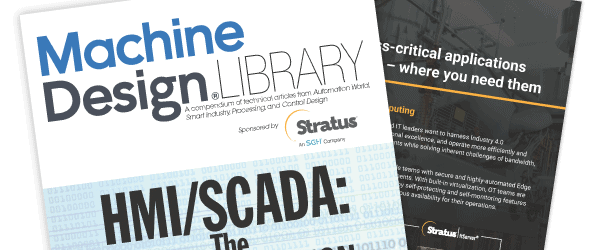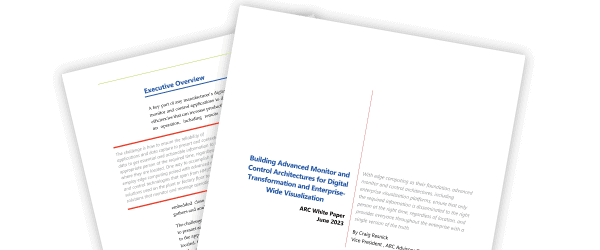Case Study
Pulse Systems
Pulse Systems and Stratus Technologies offer a FUTURE-PROOF FOUNDATION for electronic health record (EHR) implementations
Pulse has been developing healthcare software for more than 20 years. It offers solutions for small, medium and large health care facilities, from local clinics to major teaching hospitals. When the Stimulus Act provided billions of dollars in incentive aid for healthcare facilities to migrate to electronic health records (EHR), Pulse Systems was ready. The company had been selling EHR systems for years, and its Pulse Complete EHR software already met or exceeded requirements to qualify for Stimulus Act payments in 2011.
Business Situation
Pulse solutions automate the healthcare process, including patient charts, scheduling and billing. Using customizable interfaces on mobile devices such as electronic tablets as their front end, Pulse Systems software gives practitioners access to chart information, medical images, schedules, medication histories, reference libraries, document repositories, pharmaceutical formularies, and personal task lists.
Despite the EHR software’s potential to cut costs and improve patient care, as well as stimulus incentives to convert to EHR, many healthcare organizations are slow to change. One of their most persistent concerns is reliability, yet at the same time many medical organizations who convert to electronic health records hesitate to invest in high availability technology. Jon Herren, Pulse Systems’ field support manager says that’s often because they can’t reconcile purchase prices with the high cost and practice disruption that result when software goes offline.
“We strongly suggest all customers use some form of high availability, either through us or through someone else,” he said. “If an EHR server goes down, they can lose as much as a day and a half before the system is fixed. What might that cost? Customers often complain about acquisition cost, but knowing the financial impact of an outage on their business will likely justify investing in high availability technology. They might never need it, but if they do need it and they don’t have it, they’re in trouble. An investment in uptime assurance is cost-effective insurance against the pains of downtime.”
Quick Facts
Products
- Stratus Avance® high-availability software implemented on HP® ProLiant™ DL380 servers
- Stratus® fault-tolerant ftServer® systems
- Pulse Systems Pulse Complete Electronic Health Records software
Services
- PulseWatch service
- Stratus “call home” support services
Business Strategies

Pulse Systems recommends software and hardware products from Stratus Technologies to its customers because Stratus delivers always-on availability in a way that prevents downtime and data loss. Unlike other approaches sometimes used to achieve higher levels of availability, Stratus products are simple to deploy, manage and maintain, with the products monitoring themselves, anticipating potential failures and correcting faults with no human intervention.
Stratus Avance software creates a high-availability computing platform from commodity servers. The price and performance features of Avance are targeted at smaller physician practices. An Avance platform surpasses the availability levels typically provided by cluster servers but with none of the complexity or opportunity for data loss. Pulse uses an Avance system internally to support its own business operations.
For the mid-size to larger hospitals and physician practices that rely on Pulse EHR software to streamline back-office processes and facilitate delivery of patient services, an ftServer system may be an even better platform choice. The ftServer system is a combination of Stratus software and fully redundant hardware joined in a single server enclosure that provides the industry’s best protection against downtime.
As with Avance, the ftServer system’s resilient technology is backed by proactive availability management built into the server to monitor, diagnose and take preemptive action against unplanned application downtime.
“Our larger customers may not have many servers, but their expectation for application availability is the absolute possible minimum downtime. They are not comfortable with even ten minutes of unscheduled downtime per incident. With a Stratus ftServer they can be assured of near perfect availability, on the order of about a minute of downtime per year on average,” Herren said.
An investment in uptime assurance is cost-effective insurance against the pains of downtime.”
Jon Herren
Field Support Manager
Pulse Systems, Inc.
Mid-Kansas Ear Nose and Throat
Wichita-based Mid-Kansas Ear Nose and Throat is a Pulse Systems client that uses an Avance platform to support its practice management and electronic health record (EHR) systems. Avance is installed on local servers. Availability is critical, according to Administrator Jackie Stephens, because all patient information – medical history, images, prescriptions, treatment plans, appointment schedules, etc.—is electronic. Physicians, medical and business staff access the applications through laptops or desktops located throughout the practice.
Mid-Kansas ENT switched from a conventional platform to its Pulse Systems-maintained Avance-based platform after a combined hardware/software failure knocked out the practice management and EHR systems for three days. Transcriptionists were forced to reproduce the two days of records from audio recordings on another server because of a bad backup tape. Since switching to the Avance platform, the practice has had no unscheduled downtime, Stephens said.
“We had a disk drive failure not too long ago and we didn’t notice anything had happened until Pulse called to say the drive was down and they were coming to swap it out. There was no downtime at all,” she said. “With the previous system, we would have intermittent software issues. Something would go down and we’d have to schedule time for a fix. With Avance, everything is duplicated. Pulse will tell us before I know something went down because the system will still be working. I don’t have to be in the back room watching the server all the time to see if anything is going wrong.”
Business Impact
The hourly salary cost of a five-person practice averages $933, and 10 times that in a 50-person practice, according to studies conducted by the AC Group, an IT research firm specializing in the healthcare industry. For each minute a practice’s EHR system is down, it takes more than three minutes to recover to pre-outage status. Therefore, an availability solution operating at 99.9 percent efficiency (nearly 45 minutes of unplanned downtime per month) can potentially have a salary impact of around $24,000 for a small office, and close to a quarter-million dollars for a larger practice in a single year.
Pulse monitors hardware availability for 120 of its customers through its PulseWatch service. For customers who purchase ftServer or Avance, Pulse uses the “call home” function built into every Stratus products supplement Pulse’s own 24/7/365 monitoring.
At least one Pulse customer who chose not to invest in high availability technology to support their Pulse implementation had a system failure that cost them almost a week of downtime, according to Herren.
“One of our smaller customers had an off-the-shelf server with a few redundant components, but no high reliability,” he said. “They had a disk error that took down the whole operating system. They needed new drives and they were down for five days.”
“Customers often complain about acquisition cost, but knowing the financial impact of an outage on their business will likely justify investing in high-availability technology. They might never need it, but if they do need it and they don’t have it, they’re in trouble.”
Jon Herren
Field Support Manager
Pulse Systems, Inc.
About Stratus Technologies
In today’s always-on world, applications run under increasingly demanding circumstances. With these escalating demands comes greater pressure to prevent even the smallest amount of application downtime. Companies are responding to this need for always-on solutions by searching for technologies that either conform to or enhance their current IT infrastructures.
Stratus Technologies’ solutions enable rapid deployment of always-on infrastructures, from enterprise servers to clouds, without any changes to your applications. Stratus products (software and servers) combined with Stratus people, enable customers to prevent downtime before it occurs, ensuring uninterrupted 24/7/365 performance of essential business operations.




